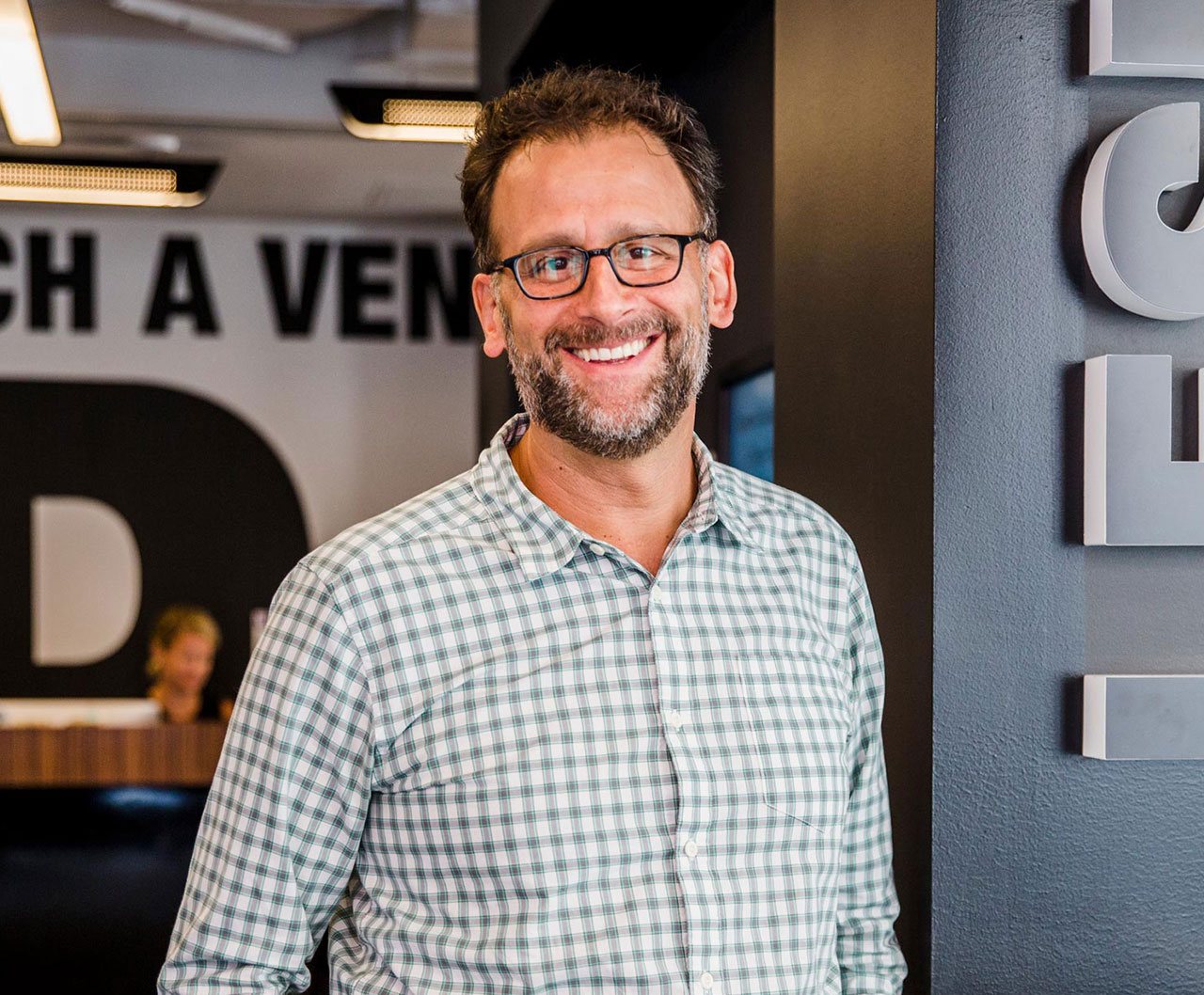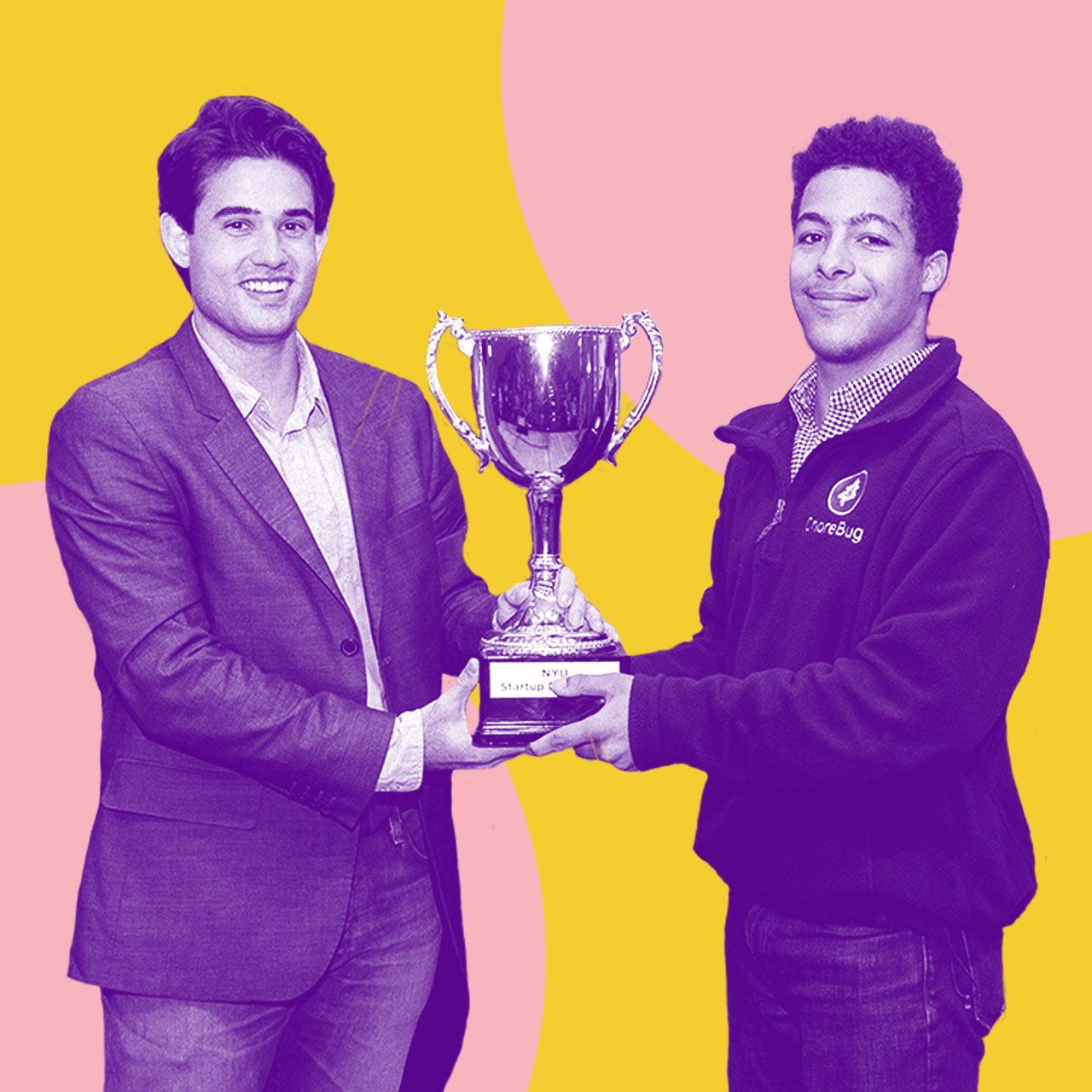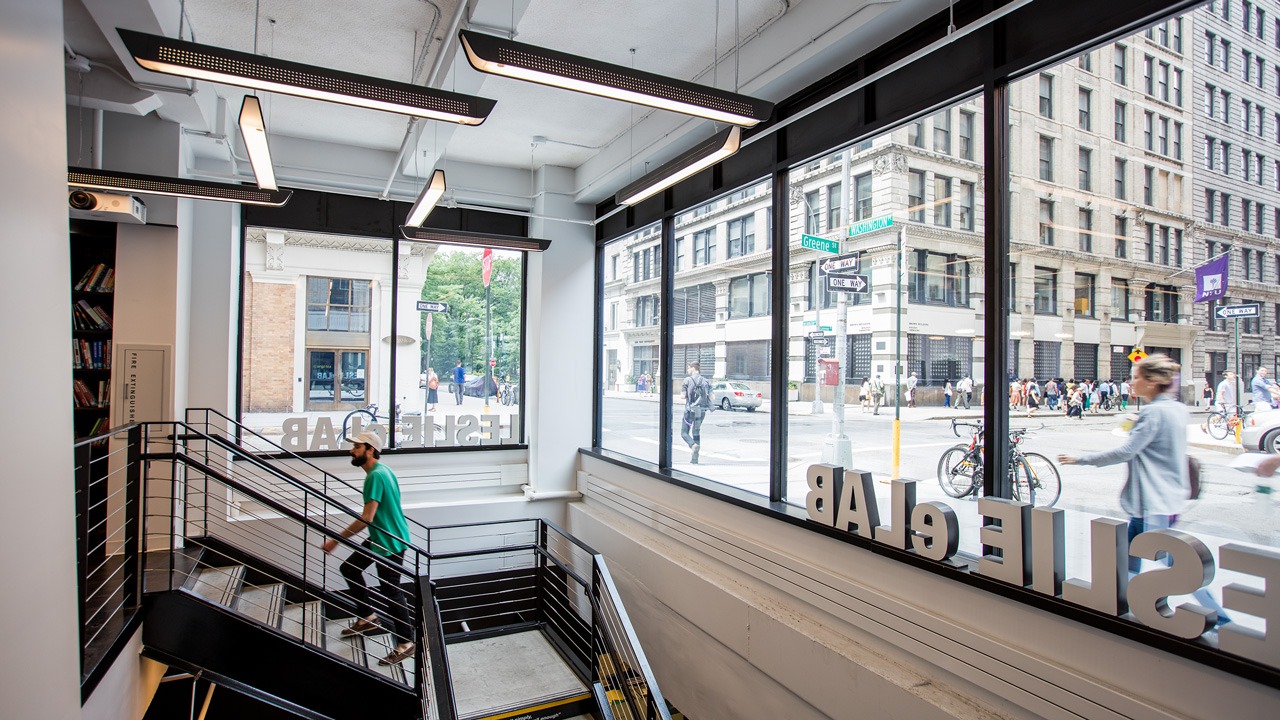Published May 04, 2021
A Fellowship for First-Generation Entrepreneurs
For students looking to start their own companies, the NYU Entrepreneurial Institute can be a major support in their journey. Aimed at creating an inclusive culture that facilitates entrepreneurship across campus, the institute supports students, faculty, and researchers who are creating scalable solutions to meaningful problems. And, because NYU has a diverse student body, with first-generation students representing 5 percent of undergraduates, the institute recently partnered with Santander specifically to support first-generation entrepreneurs.
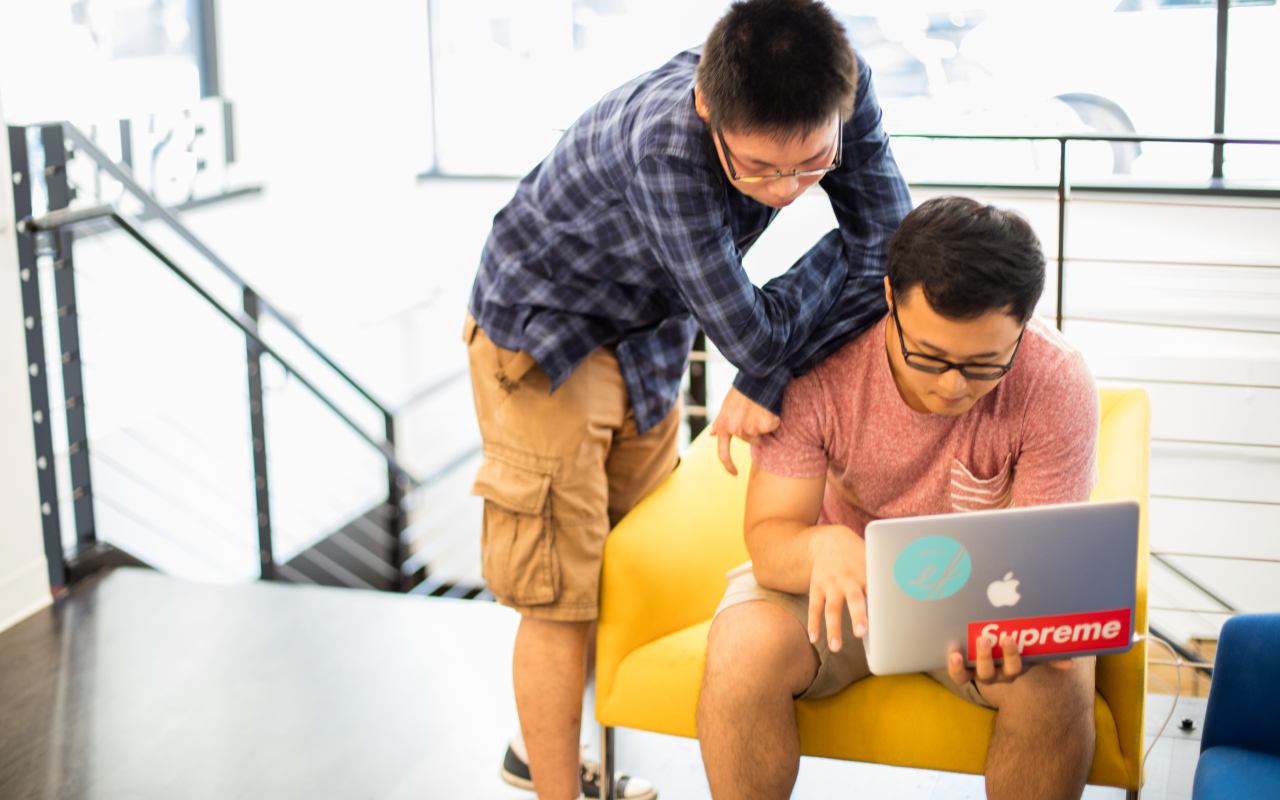
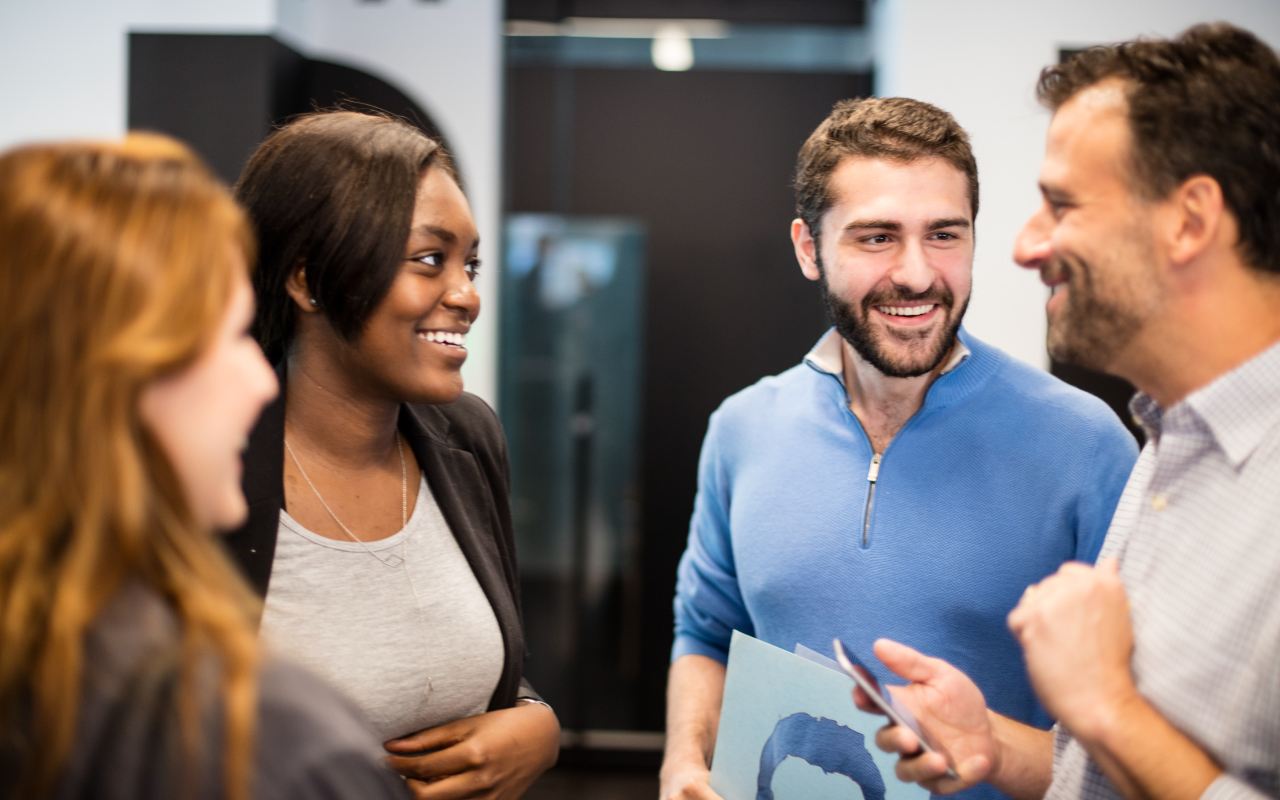
Who Is This Fellowship For?
The NYU First Generation to College Founders Fellowship launched in February. Its inaugural cohort included 13 students from seven NYU schools. Together, this group of first-generation entrepreneurs spent a semester building community. Along the way, they found mentorship and gained momentum on their ventures through events, workshops, and coaching. The program is specifically designed for NYU undergraduates who are actively working on a start-up venture and who are the first in their families to attend college, are Pell Grant eligible, or come from low-income households.
Santander sponsors the fellowship as part of their Santander Universities program. The program supports higher education efforts to build a more inclusive and sustainable future. “Weʼre proud to be selected as a pilot partner to offer scholarships and support to first-generation NYU undergraduate students through this program,” says Jen Curtis, senior operations manager at the NYU Entrepreneurial Institute.
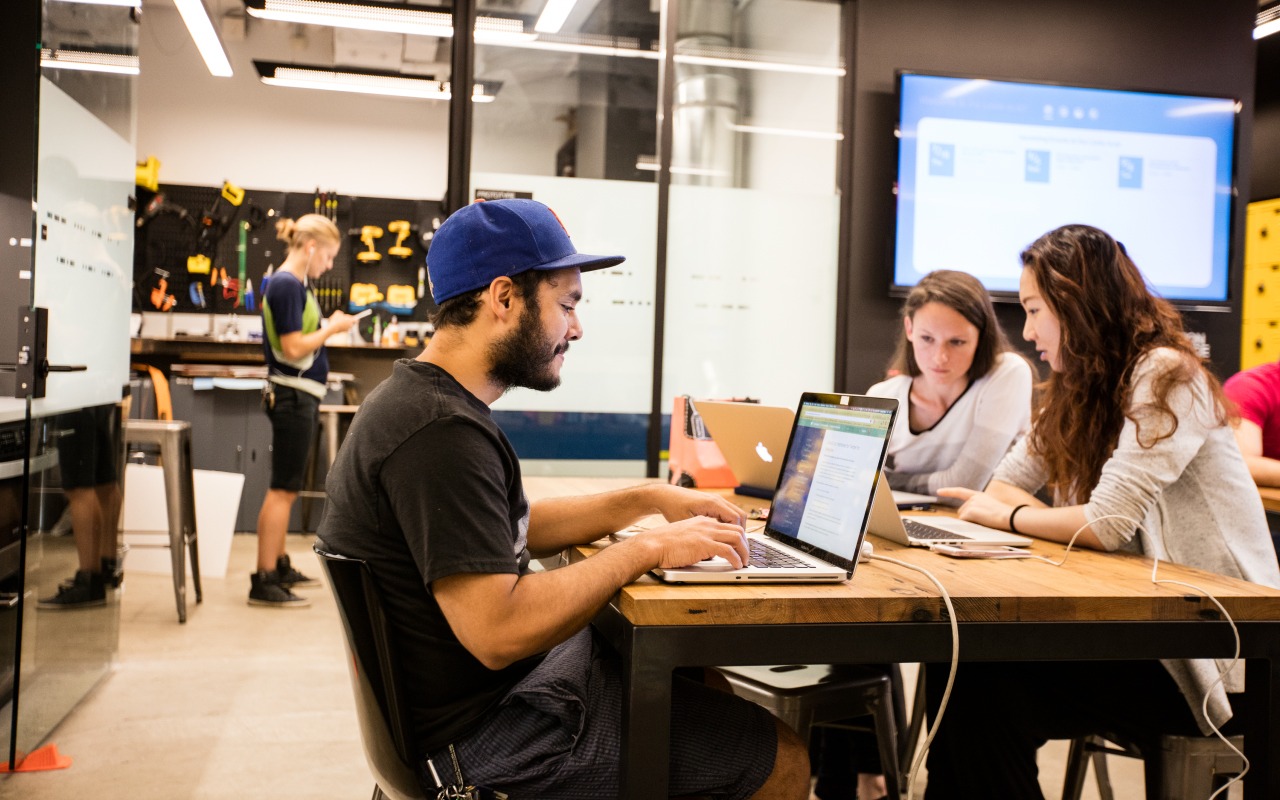
What Do Fellows Do?
Through the program, fellows receive a number of benefits. These include comprehensive start-up training and the opportunity to apply for $5,000 scholarships. Fellows also attend group workshops on topics like writing a business thesis, best practices for project management, and grant funding. Additionally, they receive individualized mentorship that, Curtis says, “is the foundation of the fellowship.”
Global liberal studies student Elissa Ha, founder of the domestic travel site for millennial BIPOC womxn, Abeona, agrees wholeheartedly. “The program’s mentorship has been invaluable. I grew close to the NYU Entrepreneurship team, and itʼs been one of the most impactful experiences of my life,” she says. “The mentors clearly care about us and want us to do well, which is really important. While working on a venture has plenty of professional and practical pitfalls to navigate, there may be even more emotional and mental blockers that you really need a support system to work through. This experience provided that.”
“The mentorship is next level,” adds Hope Ellinburg. She is a Film and TV major at Tisch, and her startup is a film production company for Native American and Indigenous people. “Everyone is so wise and experienced. It is an unmissable opportunity filled with professionals who help with everything, from grant writing to brainstorming.”
But the true highlight, Hope asserts, is hearing the other fellows talk about their ventures. “The excitement in their faces as they speak about the things they are so passionate about is lovely and makes me want to continue with the things I am passionate about,” she explains. And the inaugural cohort of fellows certainly developed a wide range of projects.
Participants also used all the resources of the fellowship to bring their ideas to life. Coaching staff from the NYU Entrepreneurial Institute meet one-on-one with fellows to offer advice and support. Additionally, founders-in-residence—like Riley Jones (NYU Law ’20), the founder of Sector Software, a new career and job search platform—provide a peer perspective on founding successful start-ups. Whatʼs more, the first-generation entrepreneurs can participate in the NYU Startup Sprint. They are also guaranteed an interview for the competitive NYU Summer Launchpad accelerator. And last but not least, they receive priority consideration for the NYU Ignite Fellowship.
The goal of the fellowship goes deeper than merely creating a sustainable business. In addition to learning to keep customers at the center of their ventures, fellows learn to position themselves at the beginning of their business for future success. “Our fellows are part of an inclusive start-up community,” Curtis says. “And they’re learning core entrepreneurial skills that can carry them in their futures.”
For students like Elissa, the program community is a place to learn, grow, and feel understood. “There is so much talent and innovation happening all across the University,” she says. “To connect to such a unique peer group with shared life experiences really keeps me motivated to improve myself and my venture while also feeling like I have the community and support that I need to accomplish my goals.” Adds Hope: “The most important thing I learned is that creating a successful start up is absolutely possible. It is not out of reach!”

